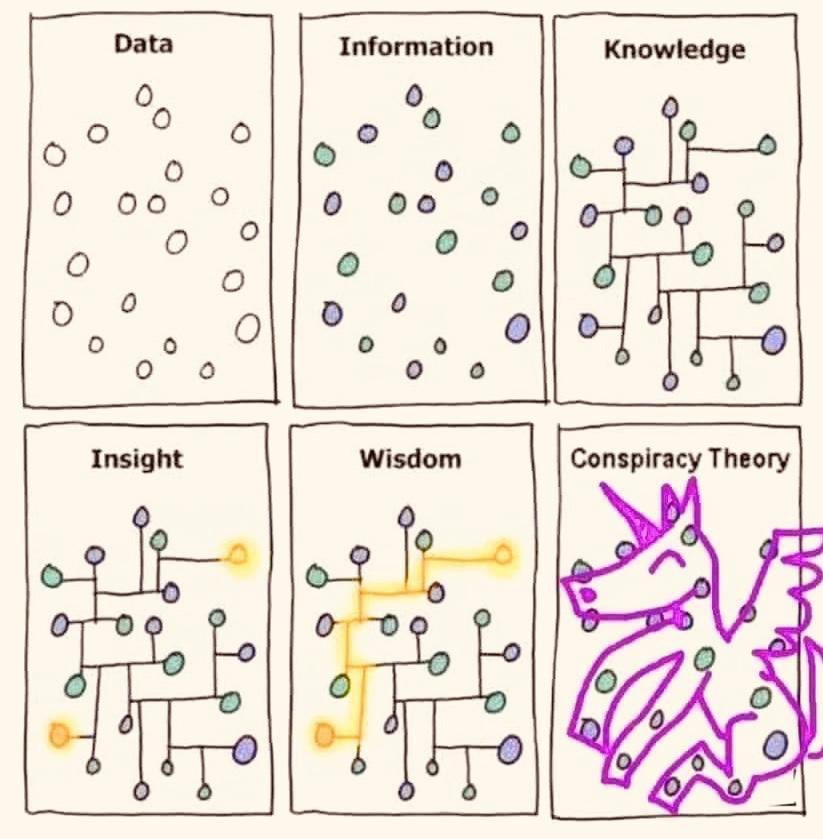Information abundance (whatever that means), herd immunity (whatever that means), and turning 30
another krappy newsletter #5
Hello again!
I write to you on this lovely Tuesday night from the Bay. The smoke has cleared a bit and I am back to going outside again. A huge win...
Sorry I had to stop and consider how sad it is that in 2020 the ability to step outside is a “win.” I won’t bore you with another soapbox rant about how much the California fires piss me off. But if you want to read that, feel free to bounce back to last week’s edition here.
On to happier things: I turned 30 late last week. A remarkable milestone. Honestly, I had a blast. Two tables of 6 at an outdoor brewery. Some amazing presents and the well wishes of my friends and family. I couldn’t have asked for a better birthday given the conditions :)
Here are a few things I paid attention to or thought about this last week:
_____
Learning to thrive in information abundance
This week I started an online course called “Building a Second Brain”. The course aims to provide you with the tools to be successful in the modern world.
In order to understand what that means, consider the following line of reasoning:
We evolved in a world where information was scarce. People used to make entire careers out of being the only person at their company who knew how to do a certain thing.
We now live in a world where information is available to everyone. Every single day more and more tribal knowledge from various experts makes its way to the Internet. We have never had better access to the best ideas.
However, we are bombarded with information every single waking minute. We don’t know what information is accurate/inaccurate without taking time to suss it out.
Therefore, the most valuable skill you can now have is perspective. Or said differently, your ability to make sense of a deluge of data is your competitive advantage.
Data is power as long as you are interpreting the data correctly.
The following graphic spells it out pretty clearly:

Source: @quaesita
Today, you are always one afternoon’s worth of Googling away from either knowing more about a tiny subsection of a subject than anyone else on the planet or becoming a member of Q’Anon (I think this is a conspiracy group? Who knows. Don’t really care). What makes the difference is your ability to process information.
Some of the articles that the course instructor (Tiago Forte) has published have already changed the way that I approach this information era.
Here are four changes he has made on my consumption habits:
Capture habit.
When you are reading take notes so that you can repurpose the content later.
Make it easier for your present self by setting up workflows that auto import your highlights from books.
Make it easier for your future self by only storing the best information.
Projects over categories.
Focus on producing tangible concrete things rather than abstract concepts.
You only know what you make.
Taking action is the best way to learn.
Slow burns.
Not everything has to be a big heavy lift.
Slowly gather the ingredients Intermediate packets.
Don’t build a cathedral in one go.
Break your ambitious dreams into tiny projects.
Start with abundance.
Don’t start writing/creating from a blank page.
I look forward to more insights throughout the course.
Link to some helpful articles from Tiago Forte:
_____
1918 Flu vs. 1800s rolling pandemics
The 1918 flu epidemic was bad, but you know what was worse? The 1800s. As you can see from the graph below, the 1800s was essentially a series of rolling, terrible epidemics.

Source: @JasonCrawford
Always important to remember that when things seem to have never been worse, they were probably way fucking worse 100 years ago.
_____
What the fuck is herd immunity?
I asked this question the other day and luckily I live with someone who knows way more about biology than I ever will (Thanks NK!)
Basically, what we mean when we say “reaching herd immunity” is that if enough people are immune (got sick and then recovered), it statistically becomes harder for sick people to run into non-immune people. Thus, this lowers the spread and can stop the virus in its tracks as that sick person may just recover without actually infecting anyone else.
This doesn’t change the underlying fact that if you lack immunity and you run into the sickness, you will get sick. It is more saying it is super unlikely that sick people keep finding non-immune people once you reach a certain percentage.
This diagram below lays it out clearly:

_____
Bringing in 30 during COVID
The hardest part was drinking the beer through the mask!





Love all the little facts. Thank you!
That data/knowledge/wisdom graphic gets me every time I see it. A data overload rule that I usually go by is if you have more than 5 tabs open relating to one topic you should start taking notes and stop acting like you’re going to leave these tabs open until you’ve read each of them in their entirety or you decide they’re dumb and worthless. Fun read, as always!
Happy 30th!!!